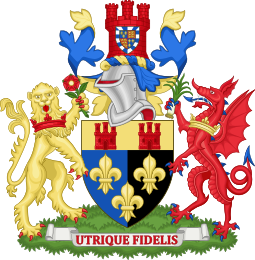Visit Explore London
Visit Explore London
 About - Gwent
About - GwentConstituent country - Wales
No. of Areas - 5
Population - 560,500
Area - 1,553 km2
Pop. Density - 361 km2
Here are some key facts about Gwent, a historic region in southeast Wales, UK:
Location: Gwent is located in the southeast corner of Wales, bordered by the counties of Monmouthshire, Blaenau Gwent, Caerphilly, and Torfaen.
Historical Significance: Gwent is one of the historic counties of Wales, known for its rich history dating back to Roman times.
Origin of Name: The name "Gwent" is believed to have originated from the old Brythonic word "Venta", meaning "windy place".
Medieval Kingdom: In the early Middle Ages, Gwent was a separate Welsh kingdom, ruled by its own kings.
Roman Legacy: The region was heavily influenced by Roman occupation, with notable Roman settlements such as Caerwent, which was once the Roman town of Venta Silurum.
Industrial Heritage: Gwent played a significant role in the Industrial Revolution, particularly in the coal and iron industries. Towns like Ebbw Vale were major centers of coal mining and steel production.
Newport: The city of Newport is one of the largest urban areas in Gwent and serves as a major commercial and cultural hub.
River Usk: The River Usk flows through Gwent, providing a lifeline for agriculture and transportation throughout history.
Arthurian Legend: Gwent is often associated with Arthurian legend, with Caerleon believed by some to be the site of King Arthur's court at Camelot.
Natural Beauty: Gwent boasts stunning landscapes, including the scenic Wye Valley and the Brecon Beacons National Park, which partially lies within its borders.
Cultural Heritage: The region has a rich cultural heritage, with a strong tradition of music, literature, and art.
Modern Administration: While the traditional county of Gwent was abolished in 1996 during local government reorganization, its legacy lives on in various administrative divisions and cultural institutions in the area.
These facts highlight Gwent's blend of history, industry, natural beauty, and cultural significance within Wales and the UK.